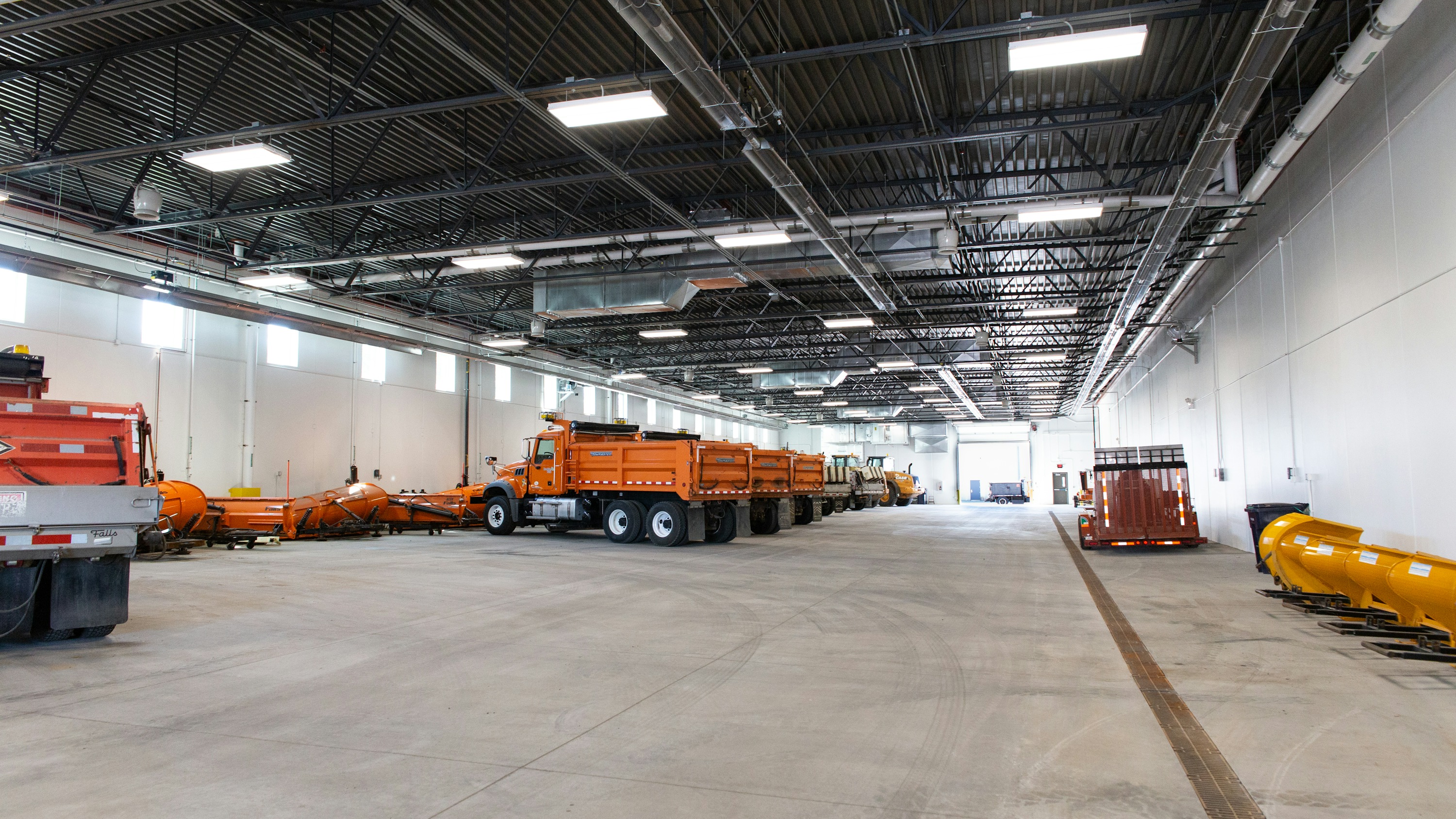
As a public works department, you are dedicating most of your resources to supporting and maintaining the public infrastructure, including sewer maintenance, street maintenance and emergency response for severe weather mitigation. Due to your continuous service to the community, you may not be able to focus on the maintenance of your own facilities. One area often overlooked when considering the maintenance of a public works facility is the type of flooring material and the associated treatments that protect the floor structure. Choosing the right flooring for a facility's unique needs is crucial in protecting equipment and cutting facility repair costs. Our team at Wold Architects and Engineers has outlined several steps below to help assist in this process.
To understand what flooring materials are appropriate, identifying your current status is the first step. It’s important to determine if you will be updating the condition of an existing slab or pouring an entirely new slab. Next, work to determine which flooring option is best for your public works facility by creating a list of potential operations that occur or could occur on your floor. It is important to note that materials will vary based on the purpose of the public works space. For instance, certain flooring solutions can specifically protect against abuse experienced in spaces such as vehicle storage, maintenance bays, washing bays and general storage.
The next important consideration requires identifying the type of equipment and associated characteristics that could damage the floor. These characteristics include, but are not limited to, the equipment's weight, tire marks left from the equipment or chemical exposure. One common type of exposure for public works facilities is salt if snow removal equipment is present. Along with salt, other common substances found in maintenance and wash bays are oils and coolants. In addition to considering what your floors are exposed to, other considerations must include overall price, ability to repel water, slip resistance and the cleaning methods required.
Once you've assessed all contributing factors, the next step is to decide on a flooring material that will meet your requirements. The most choices are grouped into two different families of products categorized as either resin coatings or penetrating sealers. Resin coatings include the types of methacrylate, epoxy and polyurethane. Coatings work by forming a superficial protective barrier on top of concrete slabs. On the other hand, penetrating sealers include several types of silanes and siloxanes. Sealers work by penetrating beneath the surface and into the concrete's pores, where it chemically reacts to create a protective bond. Coatings and sealers each come with various pros and cons, which is why understanding a facility's needs and preferences help determine which product is best in a particular space.

Relating to performance, each type of material has unique benefits and drawbacks with regards to lifespan, cost and design preferences. Sealers like the solvent-based silane water repellent can provide higher performance in areas exposed to salt and other chemicals. Therefore, wash bays and garage areas commonly feature these types of sealers. Meanwhile, coatings have a high level of resistance, which leads to a long lifespan. While they have a long lifespan, coatings are harder to repair if damaged. From a cost standpoint, penetrating sealers are a more efficient option. Averaging around $0.40/sf, sealers are often less expensive than coating options that average about $6.00/sf. Due to the labor requirements of its installation and their long lifespan, coatings are typically more expensive.
To ensure you have the time to focus on public infrastructure, equip your facilities with the appropriate protective flooring materials. Constructing and maintaining your facilities with adequate materials is vital to ensuring longevity. To determine the right decision, it is essential to understand your facility's conditions before selection. As you begin to discuss updates to existing spaces, or materials for an entirely new facility, don't hesitate to reach out to our Wold team (call (651) 227-7773 or email info@woldae.com). We are more than happy to assist in determining the best options for your facilities.